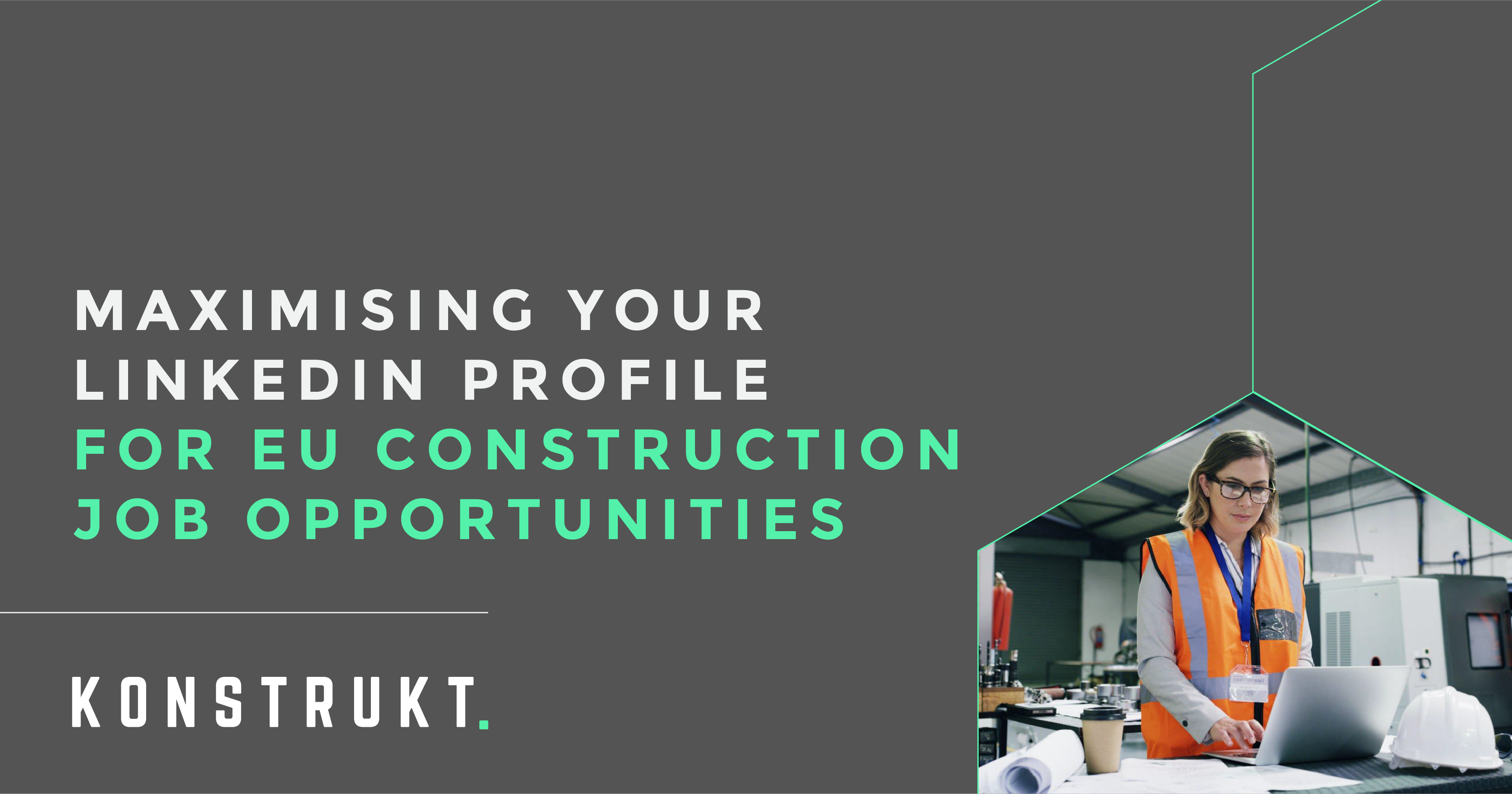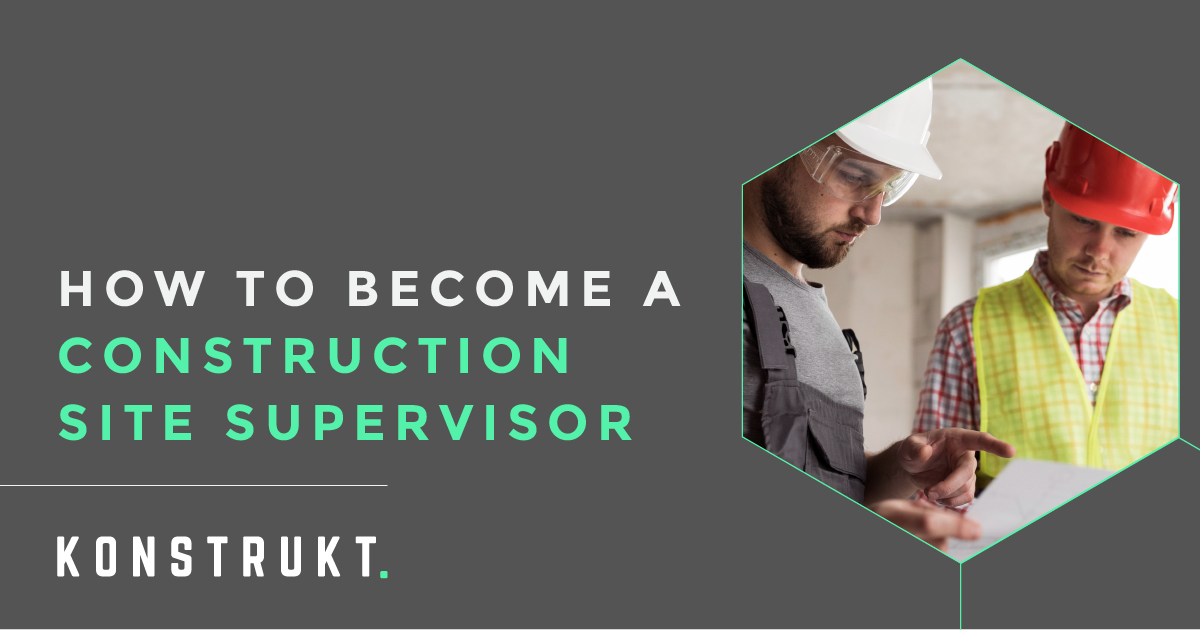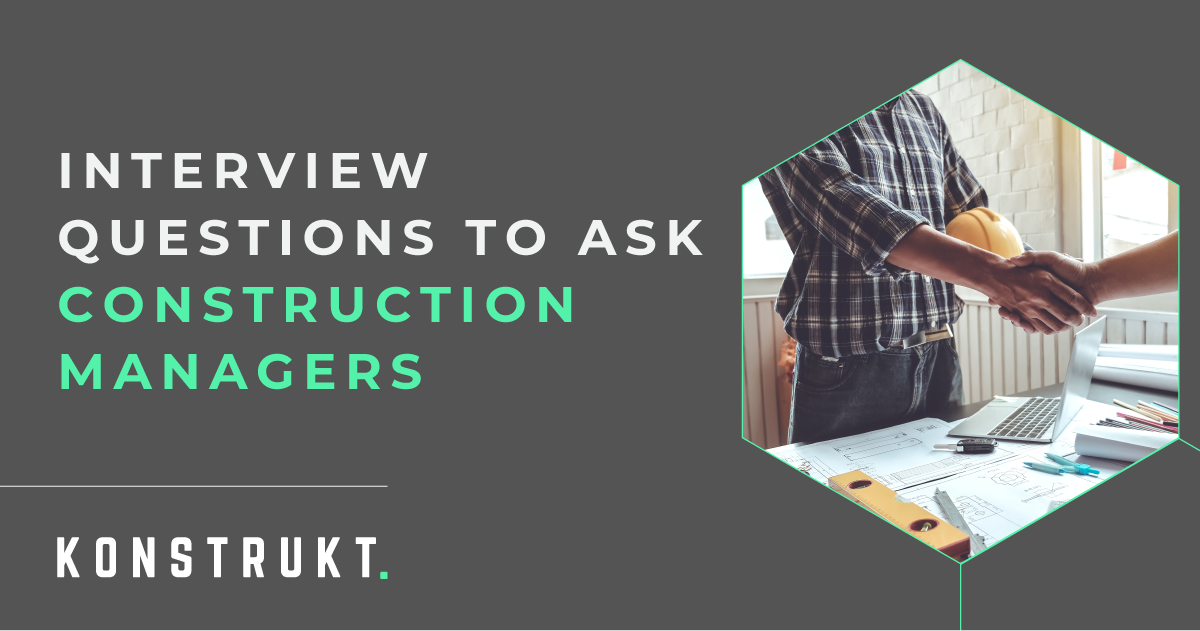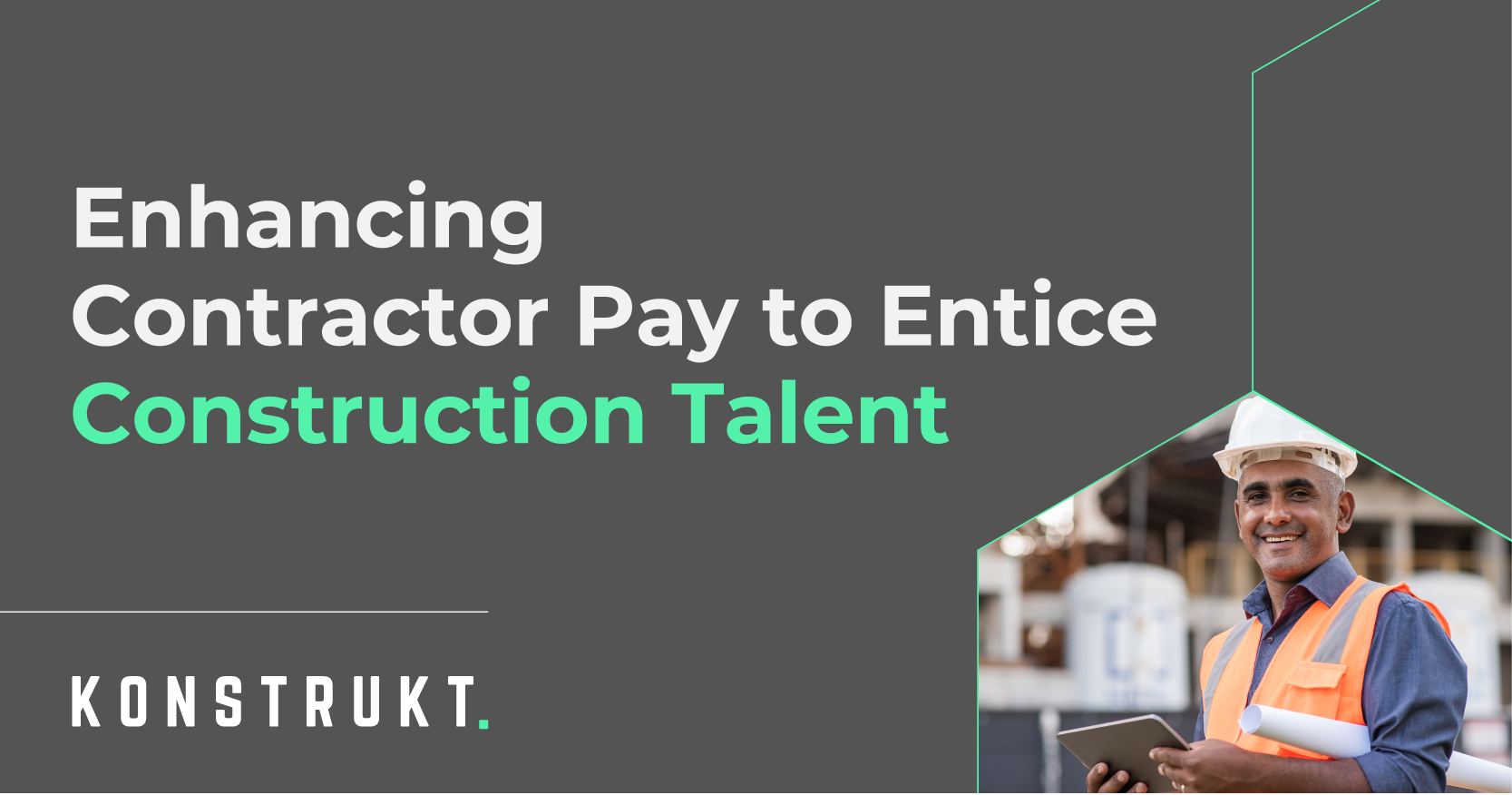If you’re an experienced construction professional, global opportunities beckon. It would be naive to underestimate the power of LinkedIn in the technical and professional industries. It remains the go-to hub for job seekers and recruiters, offering a vast pool of talent and opportunities.
From our vantage point in construction recruitment services, we’ve seen firsthand how candidates’ well-crafted LinkedIn profiles can be their key to landing exciting international job opportunities in pharma, data centre, and battery tech construction sectors across Europe.
In this article, we’ll show you how to optimise your LinkedIn profile, get noticed by relevant employers and present yourself as a top-running candidate ready to seize any opportunity in your field.
How to Optimise your LinkedIn Profile
Craft an engaging headline
Your headline is the first thing potential employers see on LinkedIn aside from your profile picture, so make it count. Write an attention-grabbing headline that highlights your expertise, spotlight your industry, job function, and any pertinent experience you have. For instance, your headline might read, Project Manager | Data Construction | International Experience.
Use a professional profile photo
A picture is worth a thousand words, and on LinkedIn, your profile photo can speak volumes about your professionalism. Choose a high-quality, professional image that presents you in a positive and approachable light. Dress appropriately for your intended industry and make sure your picture conveys your reliability. It’s best to avoid including your family, dog, or pub friends in your profile picture — keep it simple and straightforward!
Personalise your summary
Your LinkedIn summary is your chance to introduce yourself to the world. Customise it to underscore your background, language skills, and cross-cultural proficiencies. Share your notable job accomplishments and express your eagerness to work in a global setting; this is your opportunity to tell your story and connect with potential employers.
Showcase your language skills
In the global job market, fluency in multiple languages holds significant value. Specify the languages you are proficient in and indicate your level of proficiency. If you possess language certifications, make sure to include them.
Emphasise your international experience
Your international experience is a precious asset. A detailed account of any international work experience, such as cross-border projects, internships, or study abroad programmes, will add heft to your profile. Highlight the skills and cultural insights you’ve gained from these experiences, demonstrating your adaptability and global perspective.
Use relevant keywords
Conduct research to identify keywords commonly used in your target industry. You can then incorporate these keywords into your profile, including your headline, summary, experience section and skills. Keywords help your profile appear in relevant searches and show you understand the jargon of your industry.
According to LinkedIn, recruiters are now 50% more likely to search for candidates based on their skills, so be sure to weave the corresponding keywords into the skills section of your profile.
Build a strategic network
LinkedIn is all about connections, so be sure to connect with professionals and companies within your desired location or industry. If you have little to no connections on your profile, start by connecting with people you currently or have previously worked with.
Connecting with new people on LinkedIn allows you to engage in conversations and join relevant industry groups, which can be effective ways to expand your professional network. The broader your network, the more expansive your reach.
Seek recommendations
Another way to connect with colleagues or clients you’ve worked with is to provide endorsements for their skills, as this can encourage them to return the favour. Just ensure you’ve added relevant skills to your profile first so you can receive endorsements as well.
Recommendations and endorsements from colleagues and clients who can vouch for your expertise can add credibility to your profile and build trust with potential employers.
Display relevant certifications
If you have certifications or qualifications valued in your target job market, such as project management credentials or industry-specific qualifications, list each one on your profile. These certifications are like stamps of approval, showcasing your expertise.
Stay active and engaged on LinkedIn
Setting aside some time each week to consistently post and engage with content on LinkedIn is a powerful way to demonstrate your knowledge and passion for your industry. By regularly engaging with the platform, you can highlight your interest in industry trends and increase your chances of spotting job opportunities.
Remember, your LinkedIn profile is your digital business card. When you optimise it to its full potential, it can open doors to exciting new opportunities on a global scale.
Connect With Konstrukt
Ready to find your next job opportunity in Europe? Take action by connecting with Konstrukt on LinkedIn. We offer construction recruitment services and direct access to jobs across Europe’s thriving pharma, data centre, and battery tech construction sectors. Or contact us directly to get started — our friendly team is ready to help.



